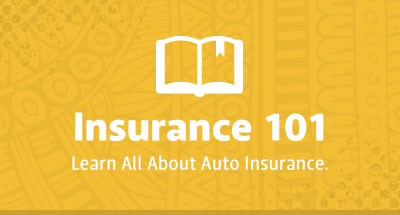Non-owner SR-22 Insurance
If you live in Illinois and have had a serious moving violation, a court may order you to file for an SR-22. But what if you’re a driver who needs a SR-22 insurance in Illinois without a vehicle?
This is where non-owner SR-22 insurance in Illinois comes in. Here, we’ll discuss what this insurance is, how an SR-22 for a non-car owner works, and how Illinois Vehicle Insurance Agency, LLC (Illinois Vehicle) can help you file.
What is non-owner SR-22 insurance?
Though an SR-22 is commonly referred to as insurance, it’s actually not an insurance policy at all. An SR-22 is a certificate of financial responsibility that can help prove you have the minimum auto insurance required by Illinois law.
Though you may be required to file for an SR-22 by a court, you may not have your own vehicle. Non-owner SR-22 insurance is typically designed for people who don’t own a vehicle but still need to file for this certificate. With a non-owner SR-22, you may be able to drive a borrowed or rented vehicle while staying compliant with state law.
With Illinois Vehicle, you may get same day e-filing of your non-owner SR-22 with the Illinois Secretary of State. We can also help you compare rates from multiple carriers so you can locate the cheapest non-owner SR-22 insurance in Illinois for your budget!
Do you need a non-owner SR-22 in Illinois?
If you live in the Chicagoland area, or in farther cities like Rockford or Aurora, you might be required to file for an SR-22 in Illinois even if you don’t have a car. Here are a few situations where that may happen:
- Driving without insurance: If you are caught driving without car insurance, you may be ordered by a court to file for an SR-22.
- License reinstatement: If your license was suspended or revoked, the state may demand you acquire an SR-22 before you can get your license back.
- Multiple traffic violations: A history of repeated offenses may also lead to an SR-22 requirement.
If you have a vehicle registered in your name, you typically won’t need to file for a non-owner SR-22.
How non-owner SR-22 insurance works
Once you have acquired your non-owner SR-22 insurance, your certificate can help you drive vehicles you don’t own while staying lawfully compliant. Unlike a standard SR-22, this type of certificate is attached to the specific driver, not the vehicle. This means that your non-owner SR-22 can help prove you have the state’s minimum mandated coverage while driving someone else’s vehicle that you’re allowed to use.
How to get a non-owner SR-22
Now that you know what a non-owner SR-22 is, you may be wondering how to get one. Here are a few steps that may be beneficial to you:
- Get a quote for your non-owner policy: To acquire a non-owner SR-22, you’ll also need a non-owner insurance policy with Illinois minimum mandated coverage. Discussing your options with an agent at Illinois Vehicle can help you find a policy that matches your needs.
- Add your SR-22: Once your coverage has started, an agent can help you file your SR-22. We can assist you with e-filing to the Illinois Secretary of State, often in the same day.
- Pay the filing fee: Filing for an SR-22 may cost between $15 to $50.
What your non-owner policy covers (and doesn’t)
What your non-insurance policy may cover typically varies widely. This is because different policies may have different coverages and limits. Here are some examples of non-owner insurance policies and what they may cover:
- Liability only: Typically, non-owner policies are liability policies for those who don’t own the vehicle they drive. A liability-only non-owner policy may pay for damages to third-party property or injuries you cause after an accident. You’ll also usually need the state's mandated minimum liability limits on your policy.
- Uninsured/underinsured motorist coverage: You may also be to purchase a non-owner policy with additional coverages, like uninsured/underinsured motorist coverage (UM/UIM). Since non-owner insurance operates as secondary coverage, this coverage would only come into play after damages that occur exceed your primary insurance policy limits. UM/UIM can help pay for damages to your vehicle or injuries you or your passengers sustain after an accident with an at-fault driver.
If you purchase a non-owner policy solely, it typically won’t cover damages to your own vehicle.
Cheapest non-owner SR-22 insurance Illinois and what affects price
Finding the cheapest non-owner SR-22 insurance in Illinois for you may feel daunting, but understanding what can affect the cost may help you locate the right policy for your budget. Here are some factors that may change the price of insurance:
- Driving history: Your driving record and how many violations you’ve accrued may increase your premium.
- Violation: The type of violation, from driving without insurance to multiple traffic offenses, may determine how costly your insurance is.
- Coverage: Typically, having a liability-only policy may be less pricey than having a policy with additional coverage.
- Location: Where you live can determine how much you pay on car insurance.
- SR-22 vs standard policy: If you’re required to get non-owner SR-22 insurance, it may be more expensive than a standard car insurance policy.
Why choose Illinois Vehicle?
When it comes to SR-22 filings, it may be helpful to choose an agency that understands the process and can offer support. Whether you’re in Chicago, Aurora, or Rockford, our agents can help you find a policy that works for your budget. Here’s why Illinois Vehicle stands out:
- We have 43 convenient locations across Illinois, if you want to discuss your options in person.
- We work with 20+ carriers that can help you compare rates and offer flexible payment plans.
- We can help you get coverage with same-day proof of insurance, whether by text or by e-mail.
- Our agents speak both Spanish and English, helping you file without a frustrating language barrier.
Whether you need help navigating the SR-22 filing system or wanting to discuss what insurance options are available, Illinois Vehicle can help guide you through your insurance journey. If you’re looking for a non-owner insurance policy, call us today at 1-630-581-4805 or visit a local office. You can also head to our website to get a free personalized quote online!
Don’t just take our word for it, here are some Trustpilot reviews from our happy customers:
- “Thank you Illinois Vehicle for always helping me and calling me to remind myself of my payments! I will always be appreciative and a loyal customer!” - Ayana D.
- “Reasonable price, excellent customer service.” - Oscar Roma A.
FAQs
How long do I need to carry non-owner SR22 insurance?
Typically, Illinois requires you to maintain your SR-22 for three years. If your coverage lapses during your designated SR-22 timeframe and you’re caught driving without car insurance, you may get your license suspended.
Can I switch to standard auto insurance later?
Yes! If you buy a car in the future, you can typically upgrade from a non-owner insurance policy to a standard auto insurance policy that can help cover your own vehicle.
Does non-owner SR22 insurance pertain to rental cars?
Typically, yes. Your non-owner SR-22 may legally allow you to drive rental cars, depending on the rental company.
Can I get an SR-22 if I don’t own a car?
Yes, this is where non-owner SR-22 insurance comes in. You can talk to one of our friendly agents to help you navigate e-filing for an SR-22 as well as find a non-owner insurance policy that works for your needs.
Disclaimer:
This material is for general informational purposes only. The products, services, and discounts referenced herein are not available in all states or from all companies. All statements are subject to the terms, exclusions, and conditions of the applicable policy. In all cases, the actual language of the policy contract prevails. Coverage is subject to individual policyholders meeting the insurer's underwriting qualifications and state availability. Other terms, conditions, and exclusions may apply.
Disclaimer:
These descriptions are meant to assist you in determining your auto insurance needs. These are not complete descriptions and do not constitute an insurance contract or coverage for specific losses. For a complete description, please consult your policy contract or contact your insurance agent.






